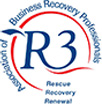If no other procedure or solution can be found in relation to your personal financial affairs, then Bankruptcy is an Insolvency Procedure that might give you the best option of settling your debts.
When is Bankruptcy Appropriate?
It is a formal process that is normally only suitable to an individual if they find themselves in a position whereby they can’t repay their debts in a reasonable time or have no real prospect of being able to do so.
By declaring Bankruptcy, it can be the best option that is available to an individual to remove the stress of dealing with a long-term debt problem.
When is Bankruptcy not Appropriate?
If you have assets that have a realisable value greater than your liabilities, then you should not be considering bankruptcy. If you are in this position, there are probably other procedures that are available to you, both formal and informal.
The issues that individuals face might simply be a cash flow matter and the realisation of some assets might alleviate the debt issues being suffered. In the event that you don’t feel that you can hold back the creditors whilst you are realising assets, or are not in a position to do so at this time, an individual voluntary arrangement might be the better option for you. It is a formal insolvency process, like bankruptcy, that allows you some time to realise your assets for the benefit of your creditors.
How is Bankruptcy started?
First and foremost, if Bankruptcy is the best way to deal with your debt, then this can either be a process started voluntarily by you, or one of your creditors who is owed more than £5,000.
Bankruptcy is a Court controlled process. Once a Bankruptcy Order is made, the Official Receiver, will become your trustee in Bankruptcy, taking immediate control of your assets. If you have sufficient assets, the Official Receiver may, on occasion, pass your estate to an external Insolvency Practitioner who will then take the role of Trustee. Either way, the Trustee of your estate will realise your assets whilst also dealing with your estates liabilities.
Why should I choose Bankruptcy over an Individual Voluntary Arrangement?
Bankruptcy is often seen as something to be avoided at all costs. However, in the right set of circumstances it can be the best way of alleviating the pressures that are faced with mounting debt issues.
Once you are Bankrupt, the creditors will no longer be able to contact you to chase their debt. Their claim against your estate will be dealt with by your Trustee in Bankruptcy.
Ordinarily, you will be discharged from Bankruptcy after one year, unlike an Individual Voluntary Arrangement which can last up to seven years.
Are there any alternatives to Bankruptcy?
Individual Voluntary Arrangements are available to individuals who want to avoid Bankruptcy and have sufficient assets or surplus income to allow a viable proposal to creditors.
If your debts are less than £15,000 in total, a Debt Relief Order might be a viable option for you. A debt relief order usually lasts for 1 year and during this time, like Bankruptcy, your creditors will not be able to take any recovery action against you. At the end of the year, your debts will be written off.
Should I Consult CFS Restructuring LLP About My Personal Debt Problems?
We offer free one to one advice and consultation and we ensure that it is only one of our partners that will be the ones to provide you with the professional advice that you need.
If you would like to discuss your personal financial affairs or discuss Bankruptcy in greater detail, get in touch with us today for free one to one advice.


